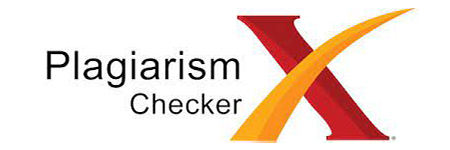Edukasi Pengelolaan Sampah Terintegrasi dengan Program NTB Zero Waste: Studi Kasus di Kecamatan Praya
DOI:
https://doi.org/10.70716/unity.v1i2.115Keywords:
Waste Management, NTB Zero Waste, Education, 3R, SustainabilityAbstract
The NTB Zero Waste program is a government initiative aimed at creating a clean and sustainable environment through integrated waste management. This study seeks to educate the community of Praya District on effective waste management aligned with the NTB Zero Waste program. The approach involves socialization, training, and mentoring the community, focusing on sorting organic and inorganic waste, transforming waste into economically valuable products, and applying the 3R principles (reduce, reuse, recycle). The results show an increase in community awareness regarding independent waste management, enhanced participation in cleanliness programs, and a reduction in unmanaged waste. These findings indicate that continuous education and collaboration with government programs can positively impact local waste management. This study can serve as a reference for implementing similar programs in other regions.
Downloads
References
Badan Pusat Statistik Kabupaten Lombok Tengah. (2023). Statistik Kecamatan Praya 2023. Lombok Tengah: BPS Kabupaten Lombok Tengah.
Fitri, D., Nugroho, A., & Rahmawati, S. (2021). Community-based waste management: A case study in East Lombok. Journal of Environmental Studies, 15(3), 145-158.
Kementerian Lingkungan Hidup dan Kehutanan. (2023). Laporan tahunan pengelolaan sampah nasional 2023. Jakarta: KLHK.
Rahmawati, S., Setiawan, B., & Priyono, T. (2022). The role of community education in improving waste management practices: A quantitative approach. Environmental Research Journal, 18(4), 235-246.
Pemerintah Provinsi Nusa Tenggara Barat. (2018). Program NTB Zero Waste: Panduan implementasi di tingkat masyarakat. Mataram: Pemerintah Provinsi NTB.
Dinas Lingkungan Hidup Kabupaten Lombok Tengah. (2023). Laporan pengelolaan sampah di Kecamatan Praya. Lombok Tengah: DLH Lombok Tengah.
Suyono, R., Hartono, T., & Lestari, W. (2020). Economic potential of recycled waste products in rural communities. Sustainable Development Journal, 10(2), 125-134.
Susilawati, R., & Prasetyo, A. (2021). Behavioral change in household waste management: Lessons from rural Indonesia. Journal of Environmental Psychology, 42(1), 98-110.
Yulianti, S., Kurniawan, D., & Rahmatullah, F. (2019). The effectiveness of zero-waste programs in reducing environmental pollution: A review. Asian Journal of Environmental Science, 14(5), 321-330.
Wahyuni, I., Anugrah, T., & Darmawan, B. (2022). Eco-enzyme production as a sustainable solution for organic waste management. International Journal of Waste Management, 8(3), 211-223.
Hasan, M. T., & Widodo, P. (2020). Role of community leaders in promoting environmental awareness. Journal of Community Engagement, 12(2), 185-196.
Setiawan, A., & Lestari, D. (2021). The impact of waste separation education on rural communities. Environmental Education Journal, 16(3), 145-158.
Downloads
Published
How to Cite
Issue
Section
License
Copyright (c) 2025 Ade Rohman, Mustafa Kamal

This work is licensed under a Creative Commons Attribution-ShareAlike 4.0 International License.











